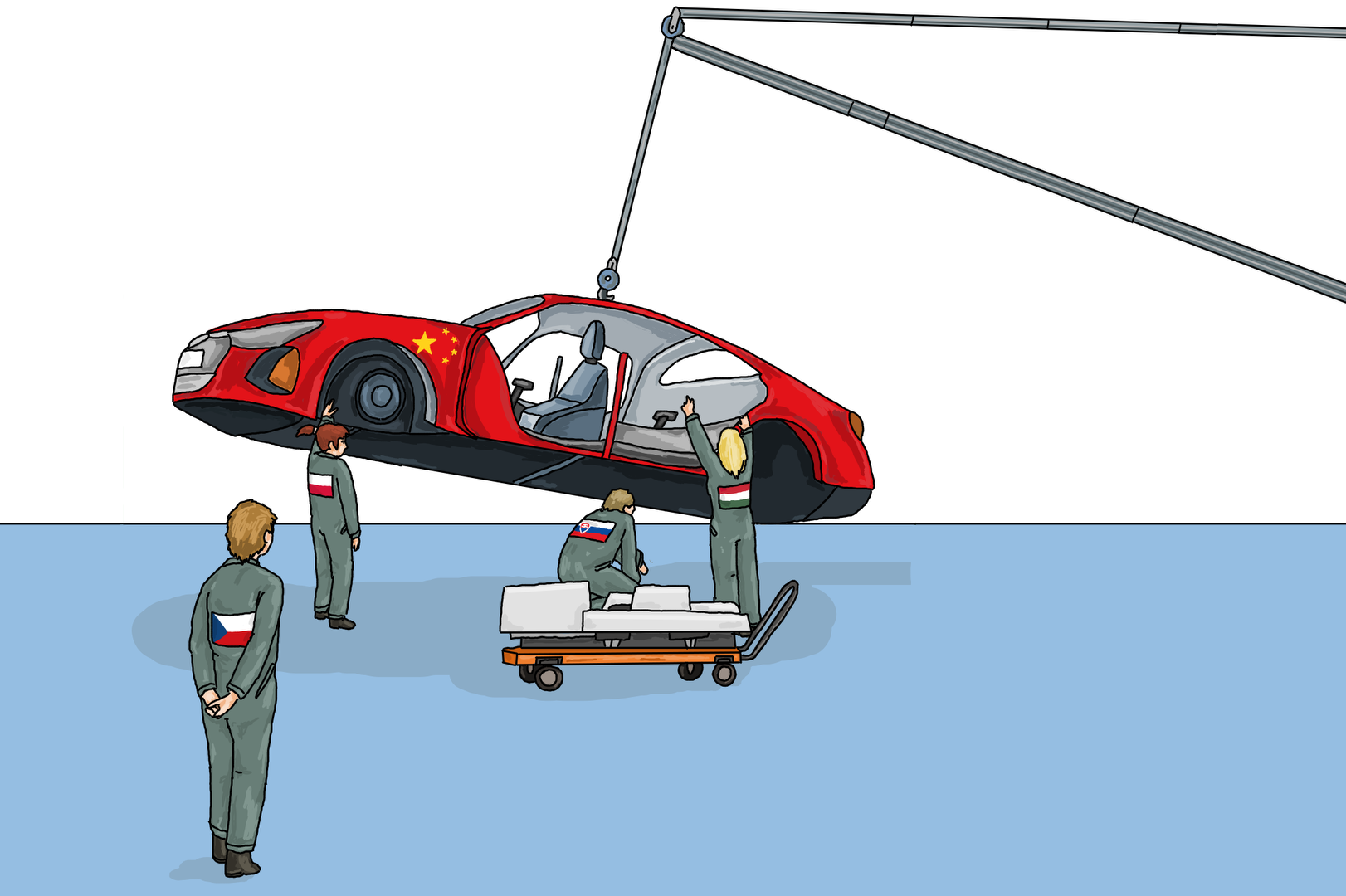Over the past decade, China has emerged as a prominent player in the global electric vehicle (EV) market. Its early recognition of the significance of electromobility for the future and government support for the sector, coupled with considerable control over the mining and processing of raw materials used in battery production, has positioned China as a key actor in the EV market.
At the same time, the shift to electromobility is presenting challenges for Europe. Chinese-made EVs imports are set to rise dramatically in the EU, threatening European manufacturers. The Central European countries (Czechia, Hungary, Poland, and Slovakia), which have been highly dependent on the manufacturing of traditional internal combustion engine cars, with regional supply chains chiefly centered around German automakers, stand to be particularly affected. However, Chinese companies are also increasingly interested in investing in local manufacturing to better penetrate the European market. This creates a complicated landscape of threats and opportunities for local economies.
The policy paper From Zero to Hero? – Chinese Investment in Electric Vehicle Supply Chains in the Visegrád Four, authored by Ágnes Szunomár, provides an examination of the key factors, trends and rammifications of Chinese investments in the EV supply chains within the four Central European countries.

